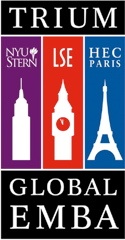Whole Foods and the FTC
 Tuesday, July 17, 2007 at 5:00PM
Tuesday, July 17, 2007 at 5:00PM Whole Foods in the United States is the leading "natural foods" grocer. (You can check its stock performance here.)
Its entire brand promise and experience have created a new kind of grocery store. In fact, their impending acquisition of Wild Oats may be blocked by the US Federal Trade Commissions because it might represent a monopoly of the organic grocery segment that Whole Foods helped define and grow.
To say that mega-grocery chains such as Safeway and Kroger do not pose a competitive force in this market is to say that Whole Foods has executed a blue ocean strategy very well by turning this segment into its own sector -- at least that's got to be what the FTC is assuming. Whole Foods' market cap is currently about 5.65 billion USD. Safeway's market cap is three times that. And Krogers' is four times bigger. So, lowly Whole Foods is a monopolistic threat ONLY if you consider it the dominant player in a whole new sector. (If you want to see graphically how much a non-threat Whole Foods really is, just compare it to Safeway, as in this Yahoo Finance chart.)
It's a problem they've created inadvertently by redefining the grocery store concept using superbly all the five forces of CEM – except one.
The current controversy with the FTC is partly driven by revelation about Whole Foods’ CEO John Mackey having used a pseudonym on a blog to trash his competition. Of course the Securities and Exchange Commission wants to know if this noise affects the acquisition materially. (UPDATE: Markey apologizes.)
But the big risk to Whole Foods is the sheer ineptness of the CEO in handling his blog strategy. He didn't realize that the blogosphere is a medium of influence, not control. (My acronym for how companies should strategically use the five forces of CEM is MIB: Manage what you can, influence everything you cannot manage, and balance any of the stuff that is totally out of your control.) Mr. Mackey did not take into account that everything put on a blog is subject to blogosphere rules, which generally skew to favor transparency and non-commercial communications. Oops.
(If you want my PDF on the five forces of CEM, just email me.)







